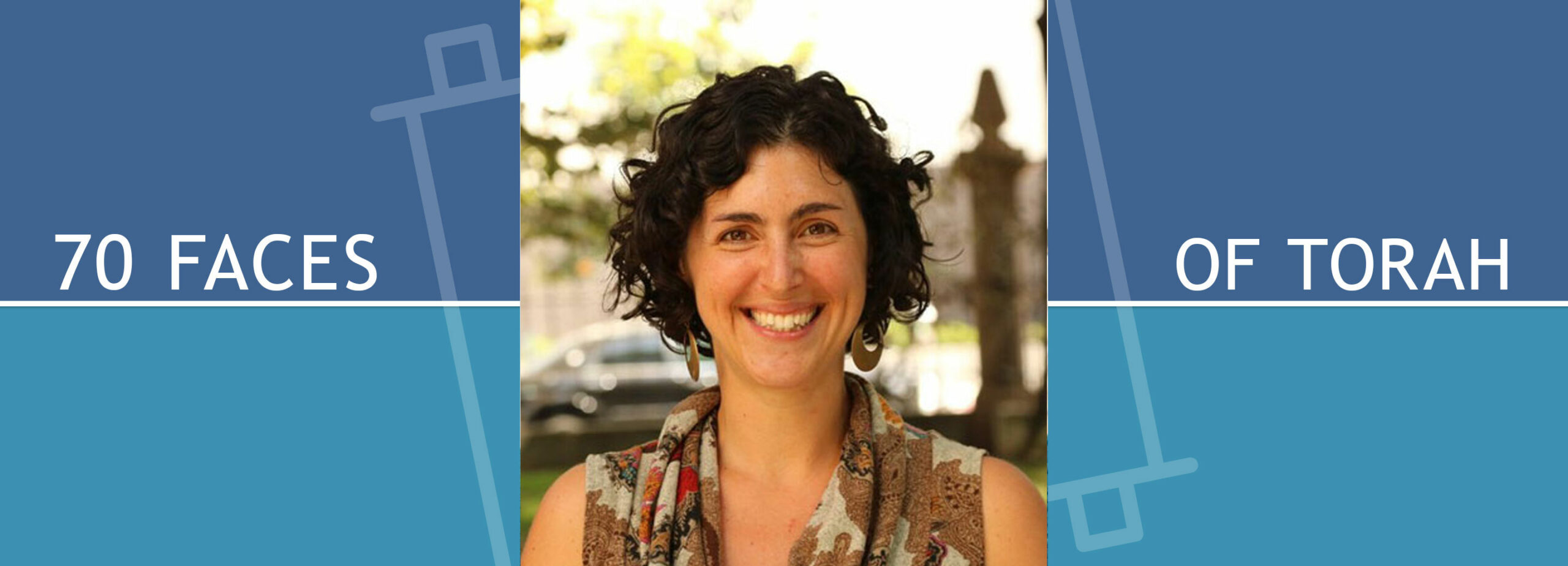Genesis Journeying towards the new world we are being shown

Among the most quintessential stories in Jewish tradition is that of God’s call to Abraham: “Lech l’cha,” “go forth — from your land, from your birthplace, from your parent’s house to the land that I will show you” (Genesis 12:1). With this call, Abraham is asked to leave behind the place where he is from, what he knows, and who he has been up until this point in his life and venture out into the unknown to discover who he will be and to bring blessings into the world. Over the course of his journey, he will face challenges big and small; his identity will shift and change; and he will come into a deeper relationship with himself and with God.
On one level, “lech lecha” can be understood as a call to an outward physical journey. Following this read of the text, God is summoning Abraham to leave Haran, the place where he lives and had come to call home, and travel to Canaan, a place unknown to him. In Canaan, Abraham will encounter people with customs, practices, and beliefs vastly different from his own. Perhaps it is this outward journey that allows Abraham to later become a fierce and compassionate advocate for justice when he argues on behalf of Sodom and Gomorrah. According to this read, it is by daring to venture beyond our own ways of living and thinking to encounter those with a different experience and understanding of the world that we may become, as the text promises Abraham, a “blessing.”
On another level, “lech lecha” is a call to a journey within. The command “lech lecha” can be read literally as “go to yourself.” Through this lens, God is calling Avram on an inward spiritual journey to examine his own views, beliefs and ideas — both those conscious and those residing beneath the surface. In this view, Abraham is being summoned beyond the comfort of his current self-understanding, to go deeply into his own heart of hearts and encounter the mix of light and shadow that exists within him.
When looking at the Biblical story of Lech L’cha, we might ask, “Of all people, why Abraham?” We are given very little information about his character up until this point. As of yet, there does not seem to be anything particularly special about him. In fact, there is so little detail pointing to why he is chosen that the rabbis invented countless midrashim to help explain why he is called. Some commentators emphasize Abraham’s uniqueness, imagining stories about all the strong leadership qualities and brilliant mind he possessed. This, they say, is why he merited God’s call. Other commentators take a different approach. Rather than imagining Abraham to hold distinctive qualities, they say that, in fact, Abraham was just like all of us. He was unique and special in the way that all of us are unique and special. This call from God, they teach, is then not something reserved for the select few — but, rather, that each and every one of us, like Abraham, are called.
There is a voice that calls out constantly to each of us, the midrash teaches, beckoning us to leave behind the comfort of what we know to venture into the unknown in order to discover that which God will show us. Our task is to remain open enough to hear the call, and to be courageous enough to follow it when we do. Each and every one of us is meant to read ourselves into this story, and to know that Abraham is not called because he is special; rather, he is special because he answers the call.
Lech Lecha calls each one of us to the complex and challenging work of our lives. We are being called to embark on multiple journeys simultaneously; to travel both within and without in order to bring about a world of blessing. It is a call to break down the walls of insularity; to venture beyond the viewpoints and beliefs that we hold dear; to encounter people, places and understandings vastly different from our own. It is from the foundation of empathy that we can truly be — as our ancestor Abraham was — powerful advocates for righteousness and justice. The unique challenge of the journey outward is how to expand our understanding of and compassion for those most different from us while at the same time fighting fiercely for the safety and protection of those we hold dear.
Lech Lecha calls us to journey inward as well. The change we seek — in our world and in ourselves — will not come unless and until we, as individuals and communities, find a way to go deep within so that we may begin to see more clearly our own unexamined views and beliefs and endure the discomfort of sitting with what we find. Lech Lecha as a call to self-examination asks us to feel into this moment of grief, uncertainty, and possibility, to venture beyond the well-trodden ground we’ve been traveling and to move forward, like Abraham, towards a new, as-of-yet-unknown, Promised Land.
These are challenging, scary, chaotic times in which we are living — months into a global Pandemic, at a time of racial violence and a national reckoning around systemic racism, days before what may be the most consequential election in recent history. The old ways aren’t working, haven’t been working for far too many for far too long. To bring a new world into being will require all of us — each from our own unique vantage point and life experience — bringing forth something new into the world: new ways of structuring society, new ways of parenting, new ways of educating our children, new economies, new ways of relating to the natural world, new ways of connecting across difference. As a species we are being called forth into the unknown, to leave behind much of what has gotten us here and to open ourselves to hear the voice that is calling us into a new future.
The road ahead is uncharted. It is times like these when we most need our sacred stories to serve as a lamp, illuminating even the darkest places. This week, Parshat Lech Lecha summons us forth into the unknown future. May we answer the call with open hearts, courage, and an openness to deep learning, growth and change. In so doing, may we discover ha aretz asher arekah — the new land — the new world — that we are being shown.
Entrepreneur and artist Rabbi Adina Allen is the Co-founder and Creative Director of the Jewish Studio Project — an arts-based nonprofit in Berkeley, CA that blends traditional Jewish learning with a creative arts studio. She is a 2014 graduate of the Rabbinical School of Hebrew College.


